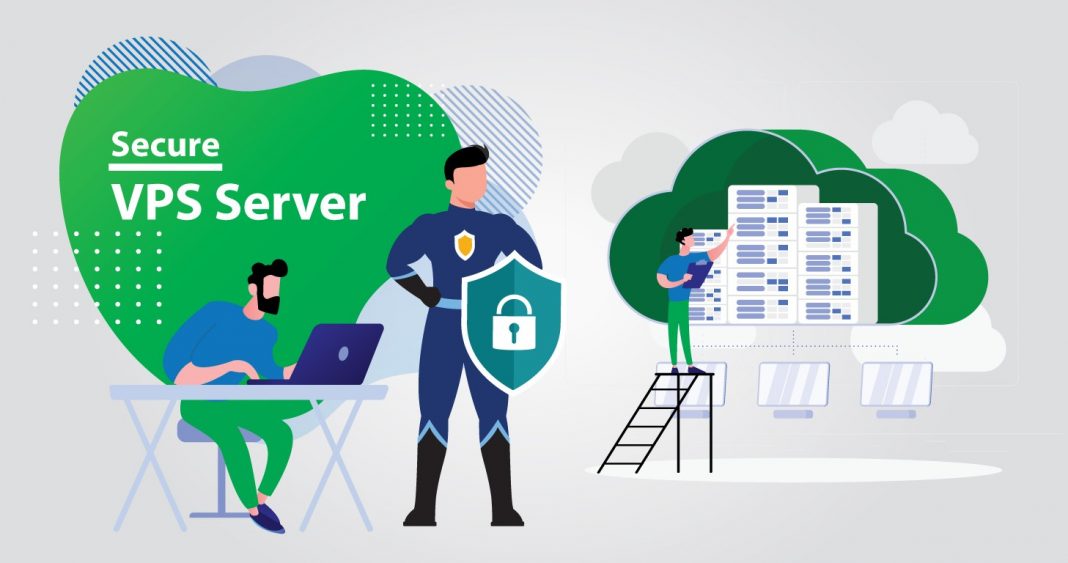are vps servers secure

As the digital landscape continues to evolve, the need for secure hosting solutions becomes paramount. Virtual Private Servers (VPS) have gained immense popularity in recent years due to their affordability, flexibility, and scalability. However, with this growing popularity comes the question of whether VPS servers are truly secure. In this comprehensive blog article, we will delve deep into the intricacies of VPS security, shedding light on the vulnerabilities, best practices, and measures you can take to ensure the safety of your data.
Before we dive into the specifics, let's first understand what VPS servers are. In a nutshell, a VPS server is a virtual machine that functions as a dedicated server within a shared hosting environment. It offers users the advantages of having their own isolated server space while sharing physical resources with other users. This unique setup raises concerns about security, as the actions of neighboring users can potentially impact the security of your VPS server. However, by implementing robust security measures and following industry best practices, you can mitigate these risks effectively.
1. Understanding the Basics of VPS Security
In this section, we will provide an overview of VPS security, discussing the inherent risks and vulnerabilities associated with this hosting solution. We will explore the concept of virtualization, isolation, and how they impact the security of your VPS server. Additionally, we will touch upon the importance of secure data centers and the role they play in ensuring the overall security of VPS servers.
2. Securing Your VPS: Best Practices and Essential Measures
Now that we have grasped the fundamentals, it's time to delve into the practical steps you can take to enhance the security of your VPS server. From choosing a reliable hosting provider to implementing strong passwords and regularly updating your software, we will cover a wide range of best practices that will fortify your server's security. We will also discuss the significance of firewalls, intrusion detection systems, and SSL certificates in safeguarding your VPS server against potential threats.
3. Managing User Access: User Permissions and Privileges
In this section, we will shed light on the importance of managing user access effectively. We will explore the concept of user permissions and privileges, discussing how they can help prevent unauthorized access to your VPS server. We will also touch upon the significance of implementing a sound user authentication system and the crucial role it plays in ensuring the overall security of your server.
4. Regular Backups: A Crucial Aspect of VPS Security
Backup strategies are an integral part of any comprehensive security plan. In this section, we will emphasize the importance of regular backups for your VPS server. We will discuss various backup methods and highlight the significance of off-site backups in safeguarding your data against unforeseen events such as hardware failures, natural disasters, or cyberattacks.
5. Monitoring and Detecting Security Threats
No security strategy is complete without robust monitoring and detection mechanisms. In this section, we will explore various tools and techniques that can help you monitor and detect potential security threats to your VPS server. From log analysis to intrusion detection systems, we will discuss how these measures can provide real-time alerts and assist in mitigating security risks effectively.
6. Patching and Updating: Keeping Your VPS Secure
Software vulnerabilities are a common target for attackers. In this section, we will emphasize the importance of regularly patching and updating your VPS server's software. We will discuss the risks associated with outdated software and provide practical tips on how to ensure your server remains up-to-date, resilient, and secure.
7. Securing VPS Email Services
Email is a critical communication channel for businesses and individuals alike. In this section, we will focus on securing the email services on your VPS server. We will discuss the significance of email encryption, spam filters, and other security measures that can help protect your email communications from unauthorized access and potential threats.
8. Hardening Your VPS: Enhancing Security Through System Configuration
In this section, we will explore the concept of hardening your VPS server through system configuration. We will discuss various techniques, such as disabling unnecessary services, configuring firewall rules, and implementing security-enhancing tweaks. By following these practices, you can significantly reduce the attack surface and strengthen the overall security of your VPS server.
9. VPS Security Audits: Assessing and Strengthening Your Server's Security
Periodic security audits are crucial to maintaining the integrity of your VPS server. In this section, we will discuss the importance of conducting regular security audits and how they can help identify vulnerabilities and weaknesses in your server's security posture. We will also provide insights into the steps you can take to address any identified issues effectively.
10. Managed vs. Unmanaged VPS: Which Offers Better Security?
Finally, in this section, we will compare managed and unmanaged VPS hosting solutions in terms of security. We will weigh the pros and cons of each option, discussing the level of control, support, and expertise they offer in enhancing the security of your VPS server. By the end, you will have a clear understanding of which option suits your specific security requirements.
In conclusion, while VPS servers bring numerous advantages, ensuring their security is of paramount importance. By implementing a robust security strategy, following best practices, and regularly updating your server, you can significantly enhance the security and protection of your VPS server. Remember, proactive measures combined with a reliable hosting provider can go a long way in safeguarding your data and ensuring peace of mind in the digital realm.




